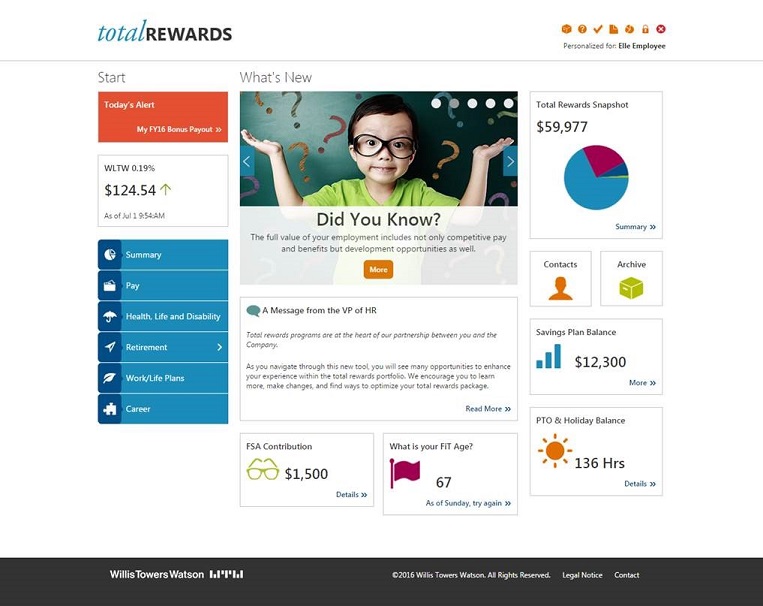True story: One of my first jobs out of college was as an HR generalist for a local health care system. As the lone human resource representative in the building, I was tasked with everything related to HR, including communicating with employees on how to best utilize their benefit programs.
"This will be the fun part of the job," I told myself. "Who wouldn't want to save in our 401(k) plan, or use employee discounts, or be part of our insurance programs?" As I quickly learned, a lot of people had little interest in benefits.
Patient care really matters most to them — and taking care of themselves is often secondary.
What I didn't realize at the time was that health care workers are unique. First, many of them do not choose their careers for the pay or benefits. Patient care really matters most to them — and taking care of themselves is often secondary.
Second, two-thirds of the workforce is fighting the time clock of the rest of the world. In an industry that operates 24/7, many health care workers struggle with work/life balance. Simple things like going to the bank, arranging for child care and picking up dry cleaning can be a challenge when you work evenings, nights and weekends, or are on call many days of the week. Trying to best utilize their total rewards programs, like saving 2% more to their 401(k) plan, gets shortchanged among their top-of-mind priorities.
Third, the diversity of a health care organization is really like no other. HR communicators are challenged with crafting messages that work across every level of the organization with wide educational disparity — from dietary and housekeeping staff to surgeons, nurses and executives.
So what is the best way to communicate total rewards to health care workers? Fortunately, today's technology gives us the opportunity to communicate with these workers more effectively. Here's how.

Personalize the content. Health care is a busy, fast-paced, stressful and rewarding atmosphere. Simplify the message by communicating on a personalized level. Use online tools, like a total rewards portal, configured to target content and data relevant to each employee. This removes the excess noise and allows the employee to focus on "what this means to me." It also allows HR communicators to segment the message to different levels of the organization.
Move online. Online access to HR content from any device is imperative for a health care organization. How else can you ensure that you are going to reach every shift, every department and every employee on a schedule that fits with their own? Create bite-sized chunks of content that can be viewed on a smartphone, tablet or PC. Make it an easy-to-navigate shopping experience with decision support tools that are easy to use and cost transparency features that help employees understand the value of their benefits.
Utilize managers. Many times, employees ask their managers HR-related questions before they check anywhere else. By leveraging technology, you can give managers their own dedicated space with easy access to tools and resources they can use to help their employees. This creates consistency of messages with the management team and ensures that managers have the right material.
Leverage multiple channels. Repetition is a good thing when it comes to communication. Promote total rewards content through the use of targeted emails, videos and traditional print media prominently displayed in employee break areas. Health care workers are not your ordinary consumers of HR content. Give them multiple ways to consume the content they need.
In summary, health care workers are special. They're not going to love your total rewards programs just because they are available. You need to give them access to personalized content and data that fit their busy, stressful and rewarding lives. Creating an engaging, personalized digital environment is the only way to do that.
The views, opinions and positions expressed within these guest posts are those of the author alone and do not represent those of Becker's Hospital Review/Becker's Healthcare. The accuracy, completeness and validity of any statements made within this article are not guaranteed. We accept no liability for any errors, omissions or representations. The copyright of this content belongs to the author and any liability with regards to infringement of intellectual property rights remains with them.

